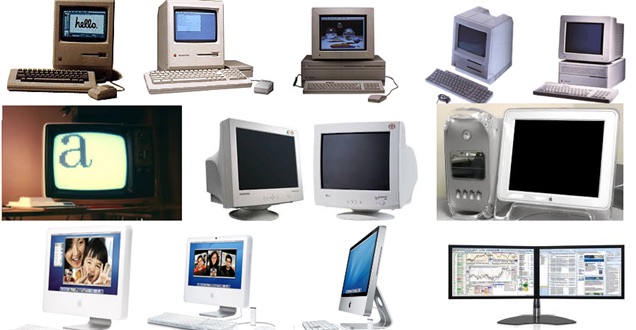The landscape of computer systems, electronics, and technology has undergone a remarkable transformation over the years, shaping the way we live, work, and communicate. From the advent of early computer systems to the rapid advancements in electronics and the ever-expanding realm of technology, this article delves into the fascinating evolution of these interconnected domains, highlighting the milestones and breakthroughs that have shaped our modern world.

1. The Birth of Computer Systems
The journey of computer systems began with the development of the first mechanical calculators and punch-card machines in the 19th century. However, it was the invention of the electronic computer in the mid-20th century that paved the way for the digital revolution. Early computers like ENIAC and UNIVAC laid the groundwork for the computation power that drives today’s digital age.
2. The Electronics Era: Transistors and Integrated Circuits
The advent of transistors in the late 1940s and the subsequent development of integrated circuits revolutionized the electronics industry. Transistors replaced bulky vacuum tubes, making computers smaller, more reliable, and energy-efficient. Integrated circuits, or microchips, further enhanced processing power and paved the way for the miniaturization of electronic devices.
3. The Rise of Personal Computers
The 1970s witnessed the emergence of personal computers (PCs), marking a significant shift in computing accessibility. Innovations like the Altair 8800 and the Apple I paved the way for user-friendly PCs, bringing computing capabilities to homes and businesses worldwide. The PC revolution democratized computing, empowering individuals to harness technology for personal and professional use.
4. The Internet and Connectivity
The 1990s saw the rapid growth of the internet, connecting people and information like never before. The World Wide Web (WWW) became a global platform for sharing knowledge, communication, and commerce. The internet’s ubiquity transformed how we access information, leading to the rise of e-commerce, social networking, and a digitally connected world.
5. Mobile Technology and Smart Devices
The 21st century witnessed an explosion in mobile technology, marked by the introduction of smartphones and other smart devices. Smartphones, equipped with powerful processors, high-resolution displays, and advanced connectivity, revolutionized how we interact with technology. The era of mobile apps and mobile-first design became a dominant force in shaping consumer behavior and lifestyle.
6. The Internet of Things (IoT) and Beyond
The Internet of Things (IoT) emerged as a new paradigm, connecting everyday objects and devices to the internet. From smart homes with connected appliances to industrial IoT transforming manufacturing processes, IoT opened up possibilities for seamless automation and data-driven decision-making.
Conclusion
The journey of computer systems, electronics, and technology has been a captivating one, driven by innovation, curiosity, and the pursuit of progress. From the humble beginnings of mechanical calculators to the interconnected world of smart devices and the Internet of Things, every step in this evolution has contributed to the advancement of human civilization. As technology continues to evolve, we can expect even more groundbreaking discoveries that will shape the future of computer systems, electronics, and technology, further enriching our lives and transforming the world around us.